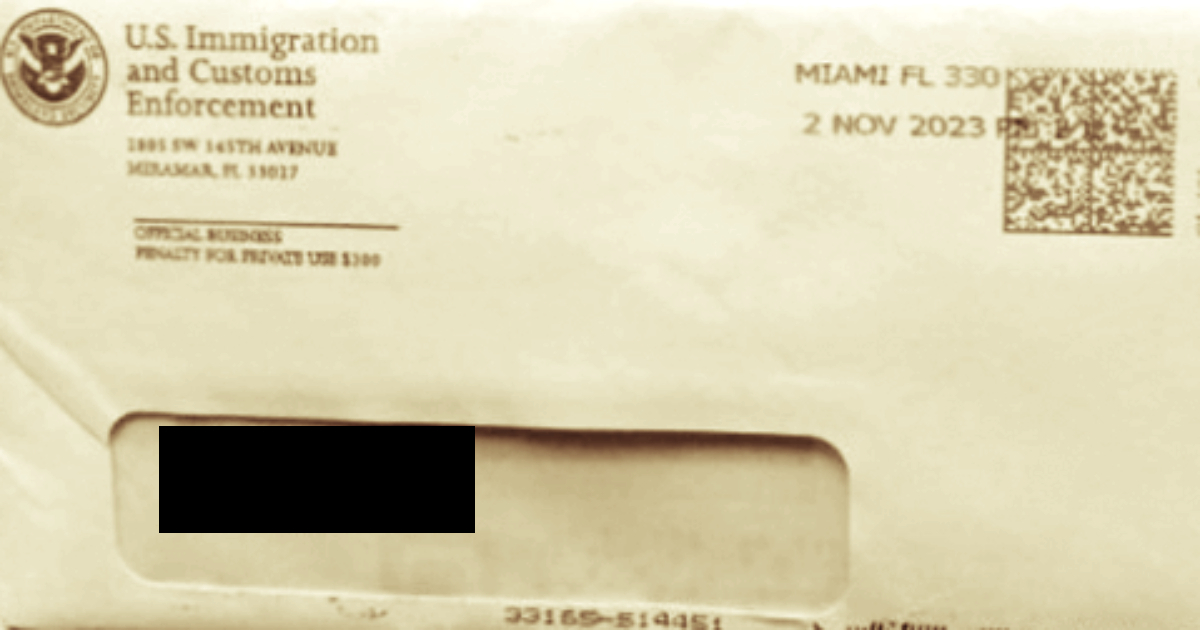
The US Department of Homeland Security (DHS) revealed that during 2023 more than one and a half million people expected to receive the humanitarian parole implemented by the Biden administration.
The figures were extracted by the journalist Daniel Benitez, which he shared on his channel YouTube the information offered by the Homeland Security Committee of the House of Representatives, who officially requested it by subpoena to DHS.
“Between January and October of last year, 269,744 people had entered the humanitarian parole program. In addition, 1.6 million people were pending review with I-134 file,” Benítez indicated on May 1.
The program implemented in January 2023 by the president's administration Joe Biden facilitates “orderly emigration” for Cuban, Venezuelan, Haitian and Nicaraguan citizens. The figures offered by DHS are global and include all applicants of those nationalities.
Of the total number of beneficiaries of the program, from January to August 2023, about 200,000 immigrants flew to the United States. Of them, 80% (161,562) arrived in four Florida cities: Miami (91,821), Ft. Lauderdale (60,461), Orlando (6,043) and Tampa Bay (3,237).
The acceptance of the program by beneficiaries and sponsors has overwhelmed the processing capabilities of the United States Citizenship and Immigration Services (USCIS), which is why, according to Benítez, there are still so many people waiting for a response from the US authorities, taking into account that the program grants a maximum of 30 thousand visas per month for the benefit of the aforementioned nationalities.
In mid-April, Customs and Border Protection (CBP) revealed that, as of the end of March 2024, more than 404,000 people from Cuba, Haiti, Nicaragua and Venezuela had been approved to travel through of that initiative.
“Specifically, 86 thousand Cubans", 168 thousand Haitians, 77 thousand Nicaraguans and 102 thousand Venezuelans were examined and authorized to travel," the entity stated in its report corresponding to the third month of the year. Of them, 84 thousand Cubans, 154 thousand Haitians, 69 thousand Nicaraguans and 95 thousand Venezuelans.
Concerns among humanitarian parole applicants
Among the almost one and a half million people waiting for the resolution of their case, many wonder why the response from the US authorities is taking so long.
The mystery was cleared up by the United States government in May 2023, by announcing changes to the selection process for applications for humanitarian parole with a financial sponsor. combining the random approval of cases with attention to requests with longer waiting times.
“We are going to implement a process where half of the appointments that are available each day - that is, of the thousand slots that are processed every day -, 500 or so will be processed at random in a lottery that can benefit anyone. waiting to be chosen in this process, and the other half of the appointments will be processed in the order in which the applications were received," he explained Blas Núñez-Neto, Under Secretary for Border and Immigration Policy at the Department of Homeland Security (DHS).
Although the humanitarian parole mechanism faced a trial promoted in August of last year by republican governments in the country, on March 8 the federal judge Drew Tipton of the court of Victoria, Texas, decided that the program would continue.
The judge's decision was based on the fact that the 21 Republican states that sued the federal government when this program began could not demonstrate that the parole had brought them significant damages.
However, thousands of people (including many Cubans) have shown their concern about a flood of humanitarian parole cases dismissed recently by US authorities
The immigration lawyer Ralip Hernandez He said that it could be various factors, among which he mentioned the requirement in reviewing the requests, technical problems on the platform, or errors when submitting the documentation.
In that sense, he suggested that Cubans check if they had open applications in more than one immigration program because this could also be the cause of the negative response, when diverse information was presented on the platforms, or missing data when filling out the questionnaires.
"We have seen denials in other nationalities. This is a program that has a limit each month and the government approves at random. The good news is that the Court has not rejected it," Hernández reminded the Cubans.
Republicans do not give up on their intention to challenge the program
During the hearing held this April 30, the president of the National Security Committee, Mark Green, again insisted that the humanitarian parole program exceeds the powers established by Congress, and advocated for a procedure of impeachment (impeachment) for the Secretary of Homeland Security, the Cuban-American Alexander Mayorkas.
“The Committee will not rest until this administration is finally held accountable for its open borders agenda and its devastating impact on our national security,” he said.
For his part, in statements to Fox News, the press secretary of the governor of Florida, Ron DeSantis, stated that “Biden's parole program is illegal and constitutes an abuse of constitutional authority.”
“Florida is currently suing Biden to shut it down and we believe we will prevail,” he added. Jeremy Redfern.
What do you think?
COMMENTFiled in: